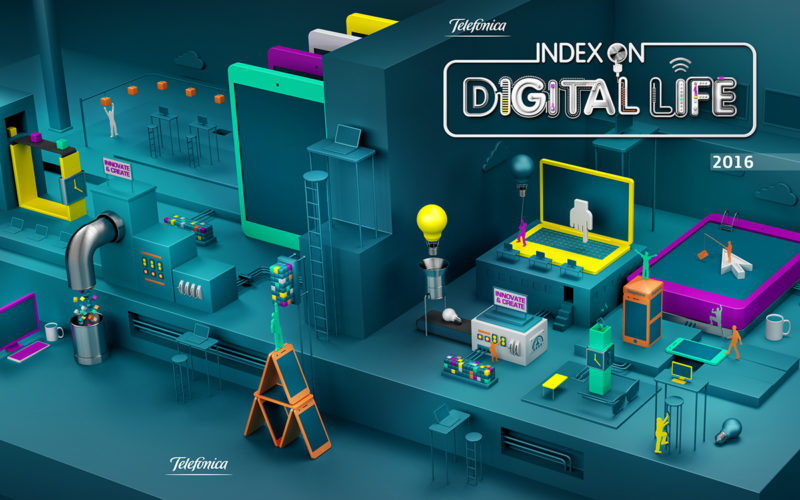By now, we are all aware that our lives are becoming increasingly digital; we bank via apps, share updates via social and make countless purchases online. But this is all anecdotal – there has yet to be a concrete way of understanding the extent to which our lives are becoming digitalised, and what the implications might be.
To rectify this, Telefonica has launched its ‘Index on Digital Life’, a hefty piece of research that maps out 34 countries and how they stand in terms of offering their citizens a digital life.
The index was created with world-leading scholars acclaimed for their peer-reviewed methodology and work in the field of entrepreneurship.
Unlike other directories, many of which rely heavily on the state of a country’s infrastructure, the Index on Digital Life measures additional, broader factors that can be categorised into three key areas:
- Openness: How free and open the web is
- Entrepreneurship: Whether people are digitally literate and if businesses are being set up to innovate through digital
- Confidence: Rates of digital adoption and security and privacy
The index throws up quite a few surprises: whilst the US predictably tops the bill, it’s Australia, Canada, Colombia, Chile, Israel and the UK that join the countries outperforming on the quality of digital life.
Telefonica believe the possibilities of technology should be open to everyone. Their aim is to help break down the barriers to adoption and empower people to grasp the opportunity and enrich their lives with digital technology in a safe, responsible and transparent way.
The pace of tech evolution and the ever-falling price of tech means that societies are going to become increasingly digital.
How people use these technologies and how they are supported will go a long way towards defining the kind of societies we live in, as well as the extent to which the global economy can benefit from the digital revolution.


Comments are closed here.